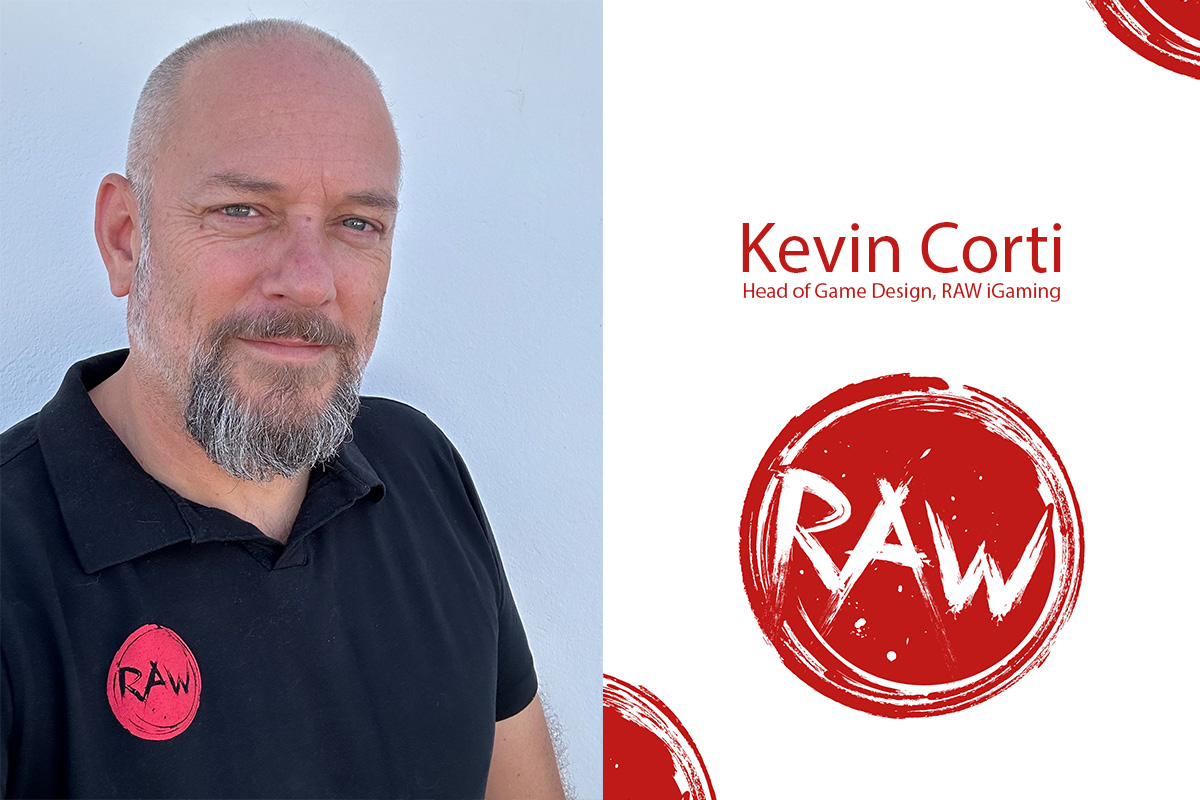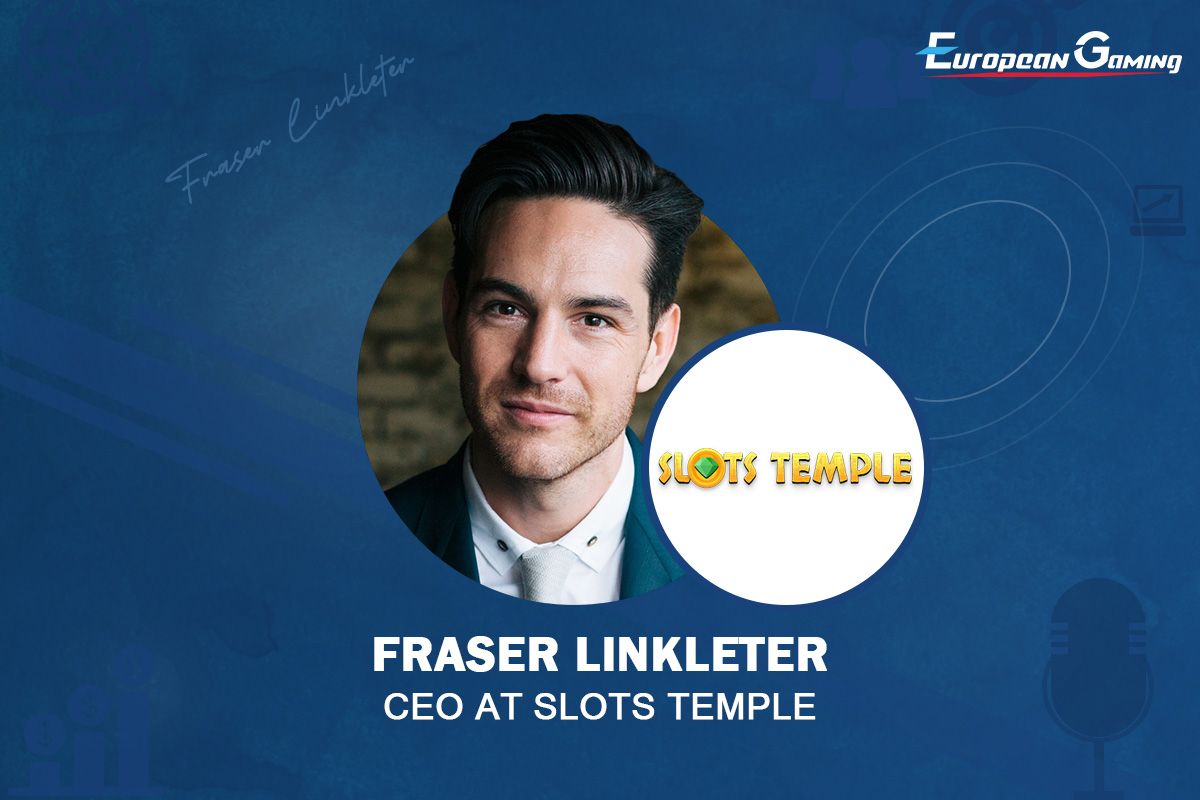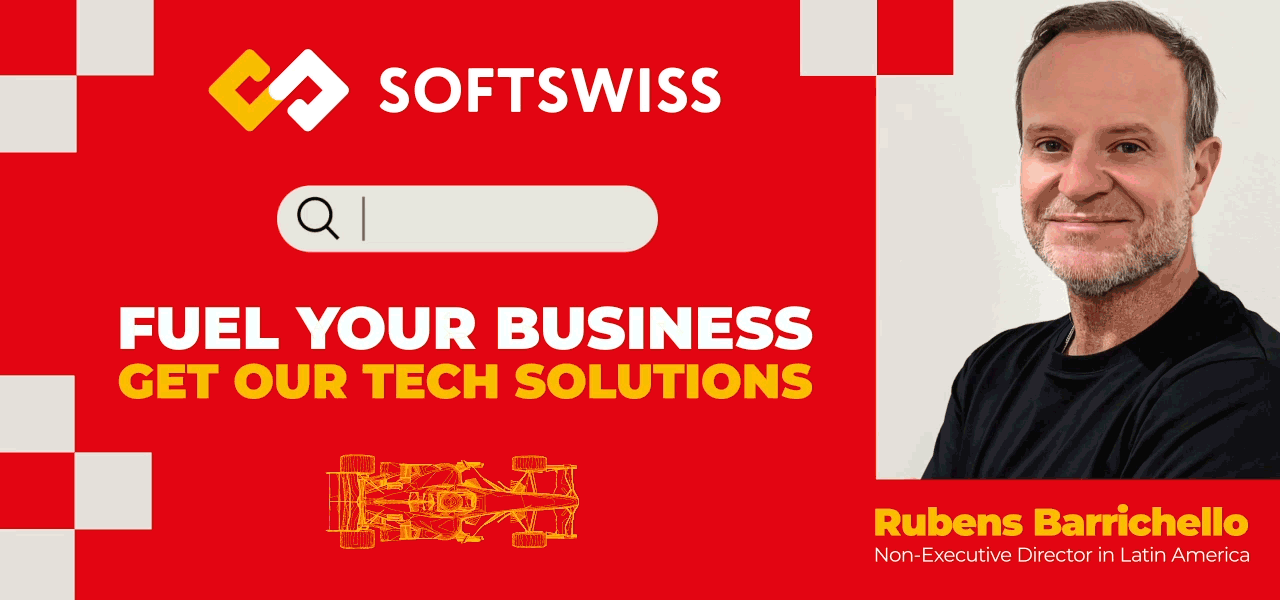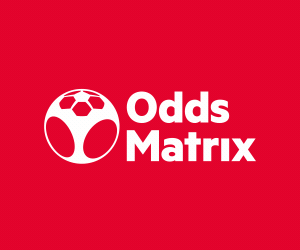Industry News
From Concept to Casino: How AI is Streamlining Game Development and Enhancing Player Interaction

Kevin Corti, Head of Game Design, RAW iGaming.
From its incorporation in early 2021 the casino game provider, RAW iGaming, has sought to think and act differently in a sector that many are increasingly considering to be all too often inhibited by risk aversion and cloning. With its motto of ‘Stand Out or Stand Down’ it is with no surprise that RAW has committed itself to applying AI to all parts of its business and, most importantly, to its product development.
But exactly what benefits can AI bring to casino game providers, and how specifically can it be applied?
Like many of our peers in this industry, our teams at RAW attempt to absorb as many AI articles as we can and to experiment with as many AI tools and technologies as possible, driven by the desire to make a better, more successful gaming experience for players.
Every evening we go home feeling like relative experts in AI only to come back the next morning to feel like complete novices all over again. Such is the pace of developments in Artificial Intelligence right now.
Does that sound familiar? If it feels to you like new AI companies, software and services appear in your LinkedIn feeds by the hour, or by the minute, then you’re not alone, and you are likely wondering where to even start with bringing AI into your business.
At RAW, we have broken this down into two distinct areas:
- The production pipeline; the processes that go into creating new casino games.
- The product offering; our vision for enhanced player experiences.
1 – The production pipeline.
This is how a game provider goes about organising and empowering its teams to conceive, design and develop new online gaming products. This very likely represents the lowest hanging ‘AI fruit’ for most organisations. In fact, we would argue that studios should consider it to be the bare minimum required to remain competitive. Simply adopting a few of the vast array of AI tools and technologies likely moves the needle – if there is a hypothetical ‘average’ artist, animator, mathematician, developer, designer, or product manager, then AI can quickly make them ‘above average’. But on the flipside, not doing this will very soon mean that they become ‘below average’, and in an industry as competitive as ours, that’s a place you and your business cannot afford to occupy.
So, where can AI play a part in your studio?
Firstly, colleagues should understand that the goal of utilising AI in the game production pipeline is to augment and supercharge our teams, not to replace them. It’s natural, in this nascent stage of AI adoption, that colleagues in some roles (art being an obvious example) may view tools such as Midjourney and DALL-E as a threat to their employment. At RAW we see it as a way to help our artists to concept, to experiment, to explore multiple avenues to automate rote tasks, and as a tool to communicate what’s in their minds to fellow team members, stakeholders and customers.
Consider this – when you’re working to select a theme for a game, why limit yourself to two or three options? Why not explore a dozen? Or a hundred? Especially now that the effort involved does not increase. And then, when you’ve settled on the overarching theme, why not quickly visualise a multitude of styles to execute it in? This alone should unquestionably lead to an explosion of fantastic-looking and attention-grabbing games in the not-too-distant future.
How many times do people in product roles and who lack artistic training struggle to accurately convey the vision they have in their heads? How much time and money has been sunk into digital products only for the product owner to apologetically utter, ‘That’s not really what I had in mind.’ Now, they too can generate visuals to be able to better communicate what they want, saving time and money (and reducing conflict).
The procedural generation of art assets (e.g. symbols) offers potential efficiencies but is, perhaps, more suited to F2P casual games developers which have to produce vast libraries of purchasable or collectable items. That said, casino games providers can potentially apply it to the creation of families of Royals or UI elements, for example. That approach could be particularly useful if you have clear house/product styles that can be fed into whatever tools you are using.
Developers are increasingly benefiting from using AI-driven code assistants These advanced tools transform the way developers work, accelerating code creation and ensuring precision, while also providing more room for innovative problem-solving. Take Amazon CodeWhisper in Visual Studio Code as an example: developers simply jot down a comment detailing the desired code, and it will promptly recommend a comprehensive code snippet that they can modify as required. As they begin to draft or tweak the code, the assistant consistently offers suggestions to bridge any gaps. But that’s just the tip of the iceberg. These assistants serve as proactive sentinels, identifying mistakes early on, thus reducing time spent on debugging. Moreover, AI code assistants enhance the calibre of a developer’s code, providing expert insights to craft efficient, sustainable, and secure scripts. They’re also invaluable for delving into unfamiliar programming languages. Implementing these tools optimizes every facet of the development process, regardless of your project’s nature. It’s no surprise that numerous leading development groups have already adopted many of the available solutions.
Moving away from art and programming, when it comes to using tools such as ChatGPT to generate or improve text content, with only a little guidance, staff will quickly reap productivity and empowerment rewards. It can be used to help draft, craft, or refine content for multiple purposes such as game rules, game specifications, pitch presentations, game content, game sheets, web and other product copy.
And then consider the potential for AI-driven character animations, spoken dialogue and text translations, and the production of audio effects and music. There’s likely no part of the game production process that is likely to remain untouched by AI.
It’s not all AI-gravy, however.
As providers of games in a regulated industry, studios are naturally going to be restricted somewhat in some respects with regard to how heavily they can leverage AI. The wider games industry is far less subject to regulation; they do not certify games that then cannot be changed (without incurring expensive re-certification). We do, however, and that means we are at a disadvantage when it comes to benefiting from applying AI in such areas as dynamic difficulty adjustments, optimised game economics, or on-the-fly procedural content creation. We cannot really leverage multivariate testing of art, logos, UI or text in games, especially the underlying math models and feature functionality. Changes equal re-certification which equals cost.
As B2B game providers, we naturally have limited awareness of the players. They’re just a unique ID in a database and we have no means to communicate with them, so in-game personalisation and adaptive gameplay opportunities are currently limited or not permitted. Or, rather, to explore these avenues would rely on close technical and commercial cooperation with casino and aggregator partners.
AI will, nonetheless, be of significant benefit to the wider industry overall with regards to key activities such as the analysis of player behaviours, fraud detection, and early detection of problem gambling behaviours. Customer support response times (and likely the quality of the experience) will rapidly improve. There are already studies in other industries that show that AI-driven first line support was demonstrably better for customers. AI offers clear potential for player/interest matching in skill-based games, and for effective personalised game recommendations. While somewhat divorced from B2B operations, these activities nonetheless promise to drive improved player NGR and lifetime value which is, of course, to the game providers’ and operators’ benefit.
2 – The Product Offering
The application for using AI directly in your product offering – to offer innovative new player experiences – is likely more challenging to an organisation but is also invariably where game-changing (sorry!) business value will derive. Again, remember that when it comes to product pipeline applications of AI, this will very quickly no longer be a differentiator, but merely the minimum your organisation needs to do to stay competitive.
How each organisation might apply AI technologies to achieve this is down to them and their teams – and, no doubt, kept under wraps until it hits the market – but the overriding drivers should likely be; ‘How can adding AI lead to a game that attracts broad attention, and acquires new players who both engage heavily and keep coming back for more?’
At RAW we have several initiatives underway, most of which we can’t yet divulge, but one we are able to talk about is our new interactive character engine, VIBE (which stands for ‘Virtual Intelligent Behaviour Engine’). It’s not uncommon for slots games to have character-based themes, but until now these characters have tended to be limited to mere animated eye candy; people, animals or creatures that hover next to the reels and which might utter a few, short dialogues when the player gets a win. We felt that was an approach that hasn’t improved for decades and decided it was ripe for an AI-based project.
With our Halloween 2023 game, Twisted Toy Tales™, we’ve introduced ‘Juggy’, an evil animatronic toy who is hell-bent on hunting down a group of teenagers who seek to uncover his existence. Rather poetically, given the topic of this article, it is Juggy’s errant AI that gives rise to his psychopathic tendencies. RAW VIBE™ enables us to create a character with a complex personality and a deep and compelling back story. The people who play this new game are going to experience character interactions like no other in our industry to date.
The challenges to using AI to enhance your products fall into two key camps: securing the necessary resources and ensuring regulatory adherence.
Firstly, with new AI companies, products and services dropping upon us like leaves in an autumn storm, identifying those that have potential business value is difficult. As will identifying which of these potential businesses will still be around in a year’s time. You’ll need to commit time and effort to the task of assessing them. Then you need to consider how ready those offerings are for your organisation right now.
Take, for example, an intelligent chatbot provided by a SaaS company that you might want to integrate into a customer-facing product. You need to consider important topics like network response times, message roundtrip completion rates, and service uptimes. Maybe it’s fine for the occasional ten-second delay or lost message, but maybe it isn’t? And how integral to your end customer experience is the service? Is it merely the icing on the cake, or would it be fundamental to generating revenue?
Secondly, regulatory topics remain a primary consideration. Consider that same chatbot example, above. Imagine what ‘advice’ it might give if left unchecked, oblivious to the nuances of responsible gambling.
It is likely that after a period of experimentation with externally hosted SaaS services, organisations will seek to bring the technology in-house. That will mean recruitment, training and investment in R&D, but it will also deliver the level of control that providers, our clients, and the players will ultimately demand. It will also lead to the creation of valuable proprietary tools and technologies that drive new revenue growth and which inflate business valuations. And at that point, game studios will have reaped tremendous rewards.
Will it be easy and straight-forward? Unlikely. But as we constantly ask ourselves at RAW, how long can ‘the same old same old’ be the industry norm?
Industry News
Playtech Live Launches Exclusive Bespoke Game with Kaizen Gaming

Playtech announced the launch of a new bespoke game, Pig Champions, developed exclusively for Kaizen Gaming, one of the biggest GameTech companies in the world. This launch marks the first Live Casino bespoke title for the leading sports betting & gaming operator and strengthens the strategic partnership between the two companies.
The game, designed to appeal to all audience types and player types across all markets, is a sporty animated universe in a Money Wheel Game show format, where 3 Pig Champions characters compete with each other to reach the highest multipliers within 3 exciting Bonus rounds. The studio is located in Playtech’s Romanian facility (PTR), offering a unique, immersive, animated experience made with fresh Unreal engine technology, featuring unique gameplay built from the ground up using advanced real-time animation.
Kevin Kilminster, Chief Product Innovation Officer at Playtech Live: “We are delighted to partner with one of the leading sports betting & gaming operators in the world to launch their bespoke Live Game Show, Pig Champions to their extensive player base. After being selected by Kaizen Gaming as the leading developer of bespoke live content, collaborating on Pig Champions has enabled the team to showcase their passion and experience by exploring new innovative ways of bringing live casino games to life that offer a fresh, safe gaming experience for players. Our partnership with Kaizen Gaming continues to evolve and we look forward to our next collaboration in bringing further exciting games to market.”
Christos Mavridis, Head of Live Casino of Kaizen Gaming: “Our content offering is some of the most exciting on the market and working with an established partner like Playtech will assist in enhancing our current portfolio even more. Pig Champions stands as evidence of Playtech’s expertise and extensive experience, elevating our live casino offering and emphasising our commitment to creating top-quality innovative game experiences for our players.”
Industry News
Amusnet Ranks Among Italy’s Top Casino Providers

Amusnet Italy is the fourth-best casino provider in the country for June 2024, according to iGaming Tracker. The company has made a significant leap in the rankings, advancing three positions to secure the fourth spot. The achievement is underscored by a 1.1% increase in market share, reflecting a substantial gain in visibility and preference among online casino operators and players. This rise reflects Amusnet’s growing influence and effectiveness in the Italian market, demonstrating the company’s leading place among the industry’s top providers.
Several notable accomplishments have bolstered Amusnet Italy’s presence in the country. The company’s commitment to excellence was recognised with the prestigious Gold Award for Casino Content Supplier 2023 from EGR Italy last November. Furthermore, Amusnet has added six new partnerships with operators since January, bringing the total number to over 30, and has maintained a robust portfolio with over 100 certified games. Additionally, Amusnet Italy has released 14 new games since the beginning of the year, with more games planned for release by the end of 2024.
Polina Nedyalkova, Director at Amusnet Italy, said: “We are incredibly proud of our progress and the milestones we have reached. This ranking highlights our leading position in the industry and our dedication to delivering high-quality, engaging gaming experiences to local players. Our advancement to the top position underscores our growing influence and effectiveness in the Italian market, and we look forward to continuing this momentum and bringing even more top-notch games to our audience.”
Affiliate Industry
Getting Sticky with It: Why Affiliate Traffic Should be About Quality Not Quantity

In a highly competitive “bonus blitzing” affiliate market, the only real winner is the bonus hunter. These affiliates may be sending traffic through to their partners in volume, but many of their users are just looking to play through a good deal, never to return.
At Slots Temple, we believe the “stack ‘em high, watch ‘em fly” approach to aggressive bonus-driven traffic no longer flies. We wanted to focus on improving the quality of the traffic and that meant doing things differently.
We began life as a site that offered free demo games and slots tournaments, and this helped to build a highly engaged base of players that genuinely loved playing slots. But we wanted to take this to the next level.
When we were awarded a UKGC gambling license in 2022, it meant we could offer cash prizes for our free tournaments. And then the next logical step was real-money tournaments in the UK with juiced-up prize pools, and ultimately real-money slots.
To create better quality traffic, you need to engage with your customers to better understand them and foster loyalty. It helps if you have a unique value proposition to increase the stickiness of your brand and engage audiences more effectively.
Our real money tournaments are a real UVP and are proving wildly popular with our users. The stakes we offer are low. You can play a slots tournament for as little as 1p, and the free-play model remains a large part of what we do – exclusively so outside the UK.
Ultimately, we want to be a safe place for players, which is why offering low stakes games is important. It’s about fostering a player base that trusts us and feels comfortable playing with us.
Yes, we’re blurring the lines between affiliate and operator, but our players know we’re not just chasing profits at the expense of everything else. Ultimately, our players see us primarily as a destination for fun play and prizes, and it’s important that we maintain that balance. If they thought we were simply out to rinse them, we’d lose their trust, and they wouldn’t come back.
Instead, it’s about offering more choice and increasing that stickiness. It also helps us better understand what games our players like to play so that we can offer more personalized recommendations.
And this is how real-money slots tournaments can really increase the quality of traffic. If a player has been playing a certain slot in a real-money tournament, for example, and wants to play at a partner site, we can guarantee that we are referring a player who is already highly engaged with the game and is ready to transition to higher stakes.
Of course, within the framework of real-money tournaments, it’s important to continue diversifying offerings by devising new formats. We have turbo tournaments, risk tournaments — a multitude of formats and price points so everyone can play the way they want to.
Our real-money tournaments are further enhanced by what was always a highly gamified platform. So, we have leaderboards, Xpoints, rewards chests, and challenges.
Continuous challenges, incentives and rewards keep users engaged over the long term. These elements can appeal to users’ competitive nature and desire for achievement, as they play for bragging rights. This enhances social elements and encourages them to engage frequently with the product
Adding fun and playful elements enhances the user experience beyond the tournaments themselves. Regular rewards and recognition prevent burnout and keep users motivated. And engaged and motivated players are more likely to become passionate about the brand.
Creating a player base that produces true value to your affiliate partners requires a number of the right ingredients, plus a lot of care and attention. But the affiliate landscape is changing, and affiliates need to get creative to get sticky.
Author: Fraser Linkleter, CEO at Slots Temple
-

 Eastern Europe5 days ago
Eastern Europe5 days ago7777 gaming is now available on WINBET Romania
-

 Gambling in the USA5 days ago
Gambling in the USA5 days agoGaming Americas Weekly Roundup – July 15-21
-

 Gaming5 days ago
Gaming5 days agoMainStreaming Announces Appointment of Nicola Micali as Chief Customer Officer
-

 Industry News5 days ago
Industry News5 days agoSafer Gambling Tools Use Hits Record High in 2023 – New Report from EGBA
-

 Australia5 days ago
Australia5 days agoAustralian eSports Star Joins Team Liquid
-

 eSports5 days ago
eSports5 days agoINSPIRED LAUNCHES RE-PLAY ESPORTS™ FEATURING CS:GO IN PARTNERSHIP WITH KAIZEN GAMING
-

 eSports5 days ago
eSports5 days agoNODWIN(R) Gaming ropes in Android as title partner for BGMS Season 3; to be powered by Garnier Men
-

 Latest News5 days ago
Latest News5 days agoSpinomenal shines again with Super Wild Fruits release





















































